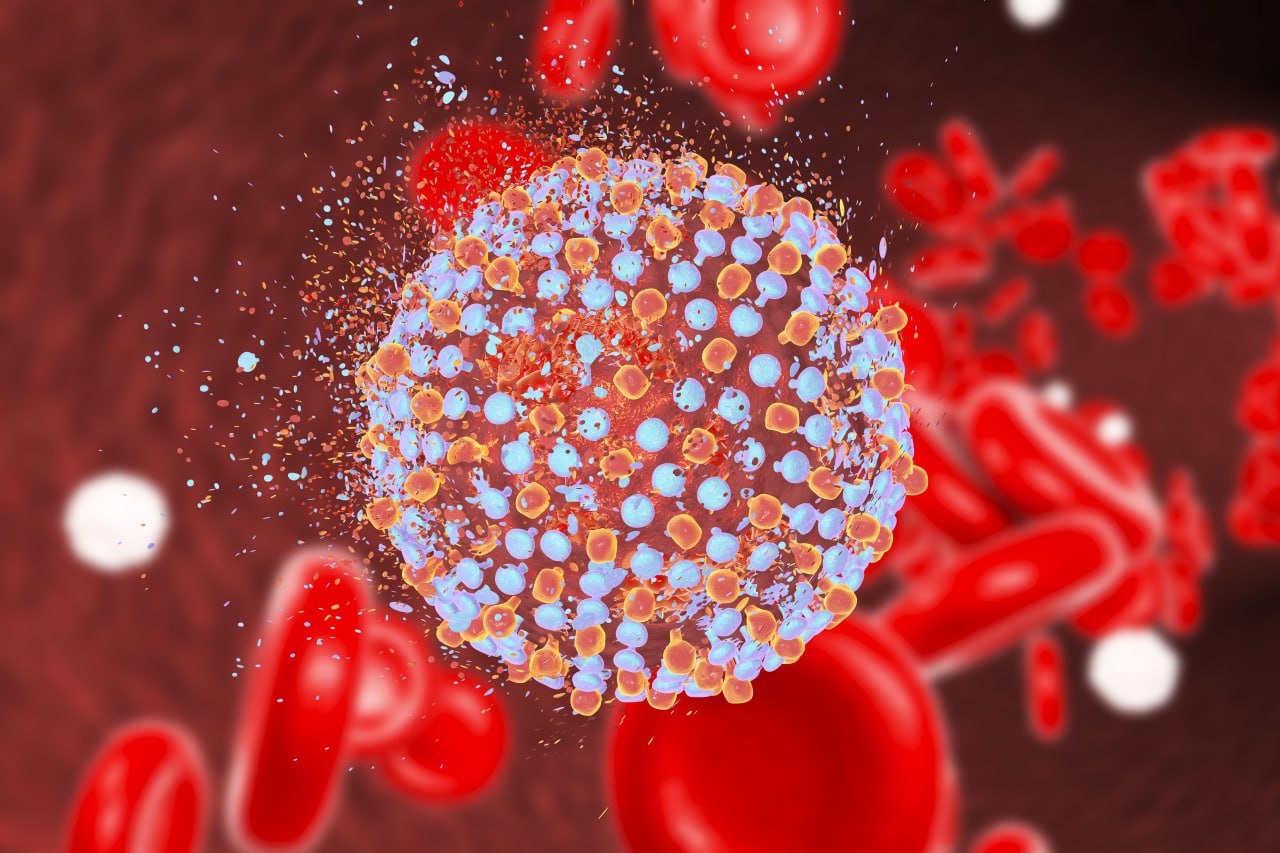About Hepatitis A
What is Hepatitis A?
Hepatitis A is an inflammatory liver disease of viral origin. The main routes of infection:
1. Direct contact with an infected person;
2. Contaminated water and food.
As a rule, the spread of this infection is due to insufficient implementation of sanitary and hygienic standards in public areas (schools, kindergartens, canteens of enterprises).

Treatment of the disease
The initial stage of hepatitis A has similar symptoms to the usual acute respiratory infections. Then typical signs join: loss of appetite, nausea, vomiting, pain in the upper abdomen; the appearance of jaundice, darkening of urine and discoloration of feces.
Hepatitis A is a treatable disease that does not become chronic. The lethality is low.
The incubation period is 2 to 4 weeks.
Frequency of hepatitis A
According to WHO estimates, about 1.5 million cases of hepatitis A occur in the world annually. In Russia, 150-200 thousand people fall ill annually.
At-risk groups
- persons traveling on business trips and on vacation to regions unfavorable for hepatitis A, including the military;
- housing and communal services workers;
- employees of trade and catering establishments;
- risk groups for complications and mortality due to hepatitis A: carriers of the hepatitis B and C virus, patients with chronic liver diseases;
- homosexuals and drug addicts;
- persons suffering from hemophilia;
- city dwellers traveling to the countryside.
What are the consequences of hepatitis A?
People who have had hepatitis A require dispensary observation, long-term restrictions on diet and physical activity.
Complications
There is a likelihood of developing "instantaneous" hepatitis A with a possible fatal outcome.
How can you protect yourself from hepatitis A?
It is necessary to follow the rules of hygiene - wash your hands with soap and water, thoroughly wash vegetables and fruits, dousing them with boiled water, drink only boiled water. But the best way to deal with hepatitis A is getting vaccinated on time.
How effective is hepatitis A vaccination?
Vaccination blocks the spread of infection, since protective antibodies appear in the blood already 15 days after vaccination. After revaccination (repeated administration of the vaccine after 6-12 months), long-term immune protection against hepatitis A infection is formed.
Indications for use
Active prevention of viral hepatitis A from 3 years of age for all categories of the population that have no contraindications to vaccination. In children under 3 years of age, the disease is usually mild.
Ask your question
We will answer your questions about cooperation, product parameters and purchase.


